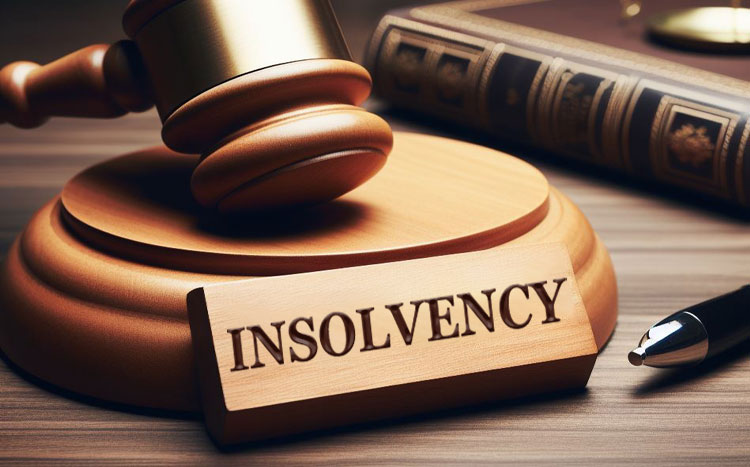In recent years, the process of creating a will has evolved significantly, with many individuals opting for online services to draft their legal documents. This shift raises an important question: do you really need a lawyer for your online will? Understanding the implications and requirements of creating a will online is crucial for ensuring that your wishes are respected after your passing.
The Rise of Online Wills
The digital age has transformed many aspects of life, including how individuals approach estate planning. Online will services have surged in popularity, offering a convenient and often more affordable alternative to traditional legal methods. These platforms typically provide templates and guided processes, allowing users to create a will from the comfort of their own homes.
However, while the convenience of online wills is undeniable, it is essential to consider whether these services can adequately address your specific needs. Not all situations are straightforward, and the complexities of individual circumstances can significantly impact the effectiveness of a will.
Understanding Online Will Services
Online will services often advertise themselves as user-friendly and cost-effective solutions for estate planning. They typically involve filling out a questionnaire that guides users through the necessary information required to create a will. Once completed, the service generates a document that can be printed and signed.
These services can be suitable for individuals with simple estates, such as those without significant assets or complex family situations. However, it is crucial to read the fine print and understand what is included in the service, as some may not provide comprehensive legal advice or support.
In recent years, many online will providers have begun to expand their offerings, incorporating features such as digital storage and updates. This means that users can easily revise their wills as their circumstances change—be it due to marriage, the birth of a child, or the acquisition of new assets. Such flexibility is particularly appealing in a world where life can be unpredictable, allowing individuals to ensure their wishes remain current without the need for a formal legal consultation each time an update is necessary.
Limitations of Online Wills
Despite their convenience, online wills come with limitations that can pose risks. One major concern is the lack of personalised legal advice. A lawyer can provide insights tailored to your unique circumstances, ensuring that your will complies with local laws and adequately addresses your wishes.

Additionally, online will services may not account for specific legal requirements, such as witnessing and signing protocols, which can vary by jurisdiction. Failing to meet these requirements can render a will invalid, leading to complications for your heirs.
Moreover, the emotional weight of drafting a will should not be underestimated. For many, this process involves difficult conversations about mortality and the distribution of cherished belongings. Online services, while efficient, may lack the empathetic support that a qualified solicitor can provide. The nuances of family dynamics, potential disputes among beneficiaries, and the need for clear communication of intentions are often best navigated with professional guidance, ensuring that the final document truly reflects the individual’s desires and mitigates potential conflicts.
When You Might Need a Lawyer
While many individuals may feel confident using online will services, certain situations warrant the expertise of a lawyer. Understanding when to seek professional assistance can save time, money, and potential heartache in the future. Click here to get about: What is a class action lawsuit? Understanding the basics.
Complex Family Situations
Families can be complicated, and situations involving blended families, estranged relatives, or dependents with special needs may require careful consideration. A lawyer can help navigate these complexities, ensuring that your will reflects your intentions clearly and is legally enforceable.
For instance, if you have children from previous relationships or if you wish to provide for a dependent with disabilities, a lawyer can assist in structuring your will to avoid potential disputes and ensure that your wishes are upheld. Additionally, the emotional dynamics within families can often lead to misunderstandings or conflicts after a loved one’s passing. A well-drafted will can serve as a clear guide, reducing the likelihood of disputes and providing peace of mind to all parties involved.
Significant Assets or Business Ownership
Individuals with substantial assets, investments, or business interests should consider consulting a lawyer when drafting their will. The intricacies involved in distributing these assets can be overwhelming, and a lawyer can provide valuable guidance on tax implications and estate planning strategies.
Furthermore, if you own a business, it is essential to have a succession plan in place. A lawyer can help ensure that your business is transferred smoothly and in accordance with your wishes, minimising disruption for employees and clients. This is particularly crucial in family-run businesses, where emotions can run high. A lawyer can facilitate discussions about succession, helping to establish clear roles and responsibilities for heirs, thereby preserving both the business and family harmony.
Specific Legal Requirements
Each jurisdiction has its own legal requirements regarding wills, including how they must be signed and witnessed. A lawyer can ensure that your will meets these requirements, reducing the risk of it being contested or declared invalid after your death.
For example, some regions may require two witnesses to sign the will in your presence, while others may have specific stipulations regarding who can serve as a witness. A lawyer can help you navigate these rules, ensuring that your will is legally sound. Moreover, they can assist in addressing any unique circumstances that may arise, such as the need for a self-proving affidavit, which can streamline the probate process and further safeguard your estate from potential challenges. Understanding these nuances can be pivotal in ensuring that your final wishes are respected and upheld, providing a lasting legacy for your loved ones.
The Cost Factor
One of the primary reasons individuals opt for online wills is the cost. Online services often present a more affordable option compared to hiring a lawyer. However, it is essential to weigh the potential savings against the risks of not having professional guidance.
Comparing Costs
Online will services typically charge a flat fee, which can be significantly lower than the hourly rates charged by lawyers. However, this cost comparison may not tell the whole story. If a will created online is later contested or fails to meet legal standards, the resulting legal fees and complications can far exceed the initial savings.
Moreover, consider the long-term implications of your will. Investing in professional legal advice may provide peace of mind, knowing that your estate is in order and your wishes will be respected.
Potential Hidden Costs
When opting for an online service, it is crucial to be aware of any hidden costs that may arise. Some platforms may charge additional fees for features such as updates, storage, or access to legal advice. Understanding the full scope of what you are paying for can help avoid unexpected expenses down the line.

Additionally, if your situation changes—such as marriage, divorce, or the birth of a child—updating your will may incur further costs. A lawyer can provide ongoing support and ensure that your will remains current as your circumstances evolve.
Conclusion: Making the Right Choice
Deciding whether to use an online will service or consult a lawyer ultimately depends on individual circumstances. For those with straightforward estates and uncomplicated family dynamics, an online service may suffice. However, for individuals facing more complex situations, the expertise of a lawyer can be invaluable.
It is essential to assess your needs carefully and consider the potential risks associated with online wills. If in doubt, seeking professional legal advice can provide clarity and ensure that your will accurately reflects your wishes, protecting your loved ones in the future.
In summary, while online wills offer a convenient solution for many, the importance of personalised legal advice cannot be overstated. Ultimately, investing in a lawyer may be a wise decision, safeguarding your legacy and ensuring that your estate is handled according to your wishes.






